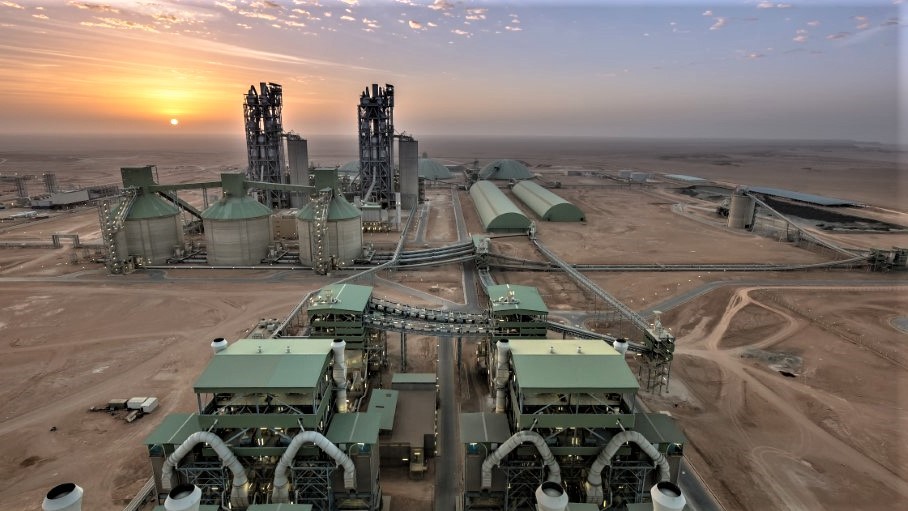Constructing such a large industrial plant in the middle of the desert poses major challenges. The lack of infrastructure, temperatures of up to 50 degrees Celsius in the summer, the coordination of a multitude of people and cultures on the construction site and, of course, the restrictions resulting from the Corona pandemic have demanded everything from everyone involved.
Project Director Andreas Lehmkuhl: "During the peak phase, more than 3,000 people from 38 different countries worked on the construction site. I am proud that we managed to reconcile the special features of so many cultures. This was made possible by the common will to complete this important facility for Saudi Arabia and a great deal of communication."
During the peak phase, more than 3,000 people from 38 different countries worked on the construction site.
Andreas Lehmkuhl, Project Director
4,100 kilometers of power cable stretch from Berlin to the North Pole
The dimensions of the Yamama cement plant are considerable: 340,000 tons of concrete, over 43,000 tons of steel structures, 48,000 tons of mechanical installations, 13,800 tons of refractory material, 1,700 tons of insulation, 7,100 parts for the electrical system and over 4,100 kilometers of cable were installed. A distance from Berlin to the North Pole!
Cement plant has state-of-the-art technical equipment
As EPC partner, thyssenkrupp Polysius was responsible for the engineering, procurement and construction of the turnkey cement clinker production lines, including the supply of all components from raw material preparation to clinker production and cement loading, as well as systems for quality control and monitoring. Among other things, a total of seven crushers for limestone and additives, a 3.7-kilometer-long limestone conveyor belt, three storage facilities for clay and limestone with a capacity of 80,000 tons each and two storage facilities for additives with a capacity of 30,000 tons each were built. The new cement plant has four quadropol® roller mills, two dopol® preheater towers, two 3-support kilns and 2 polytrack® clinker coolers.
The clinker produced is collected in three silos with a capacity of 100,000 tonnes each and further processed with four polycom® high-pressure roller mills. Six silos with capacities of 25,000 and 22,590 tonnes each store the cement produced.
The water required for operation and possible fire fighting is provided in basins with a storage capacity of over 22,000 m³.
60 years of successful business relations
The successful handover of the new plant to our long-standing customer Yamama Saudi Cement and its granting of the provisional takeover certificate for lines 1 and 2 are a real milestone for us. For thyssenkrupp Polysius, the construction of the cement production lines in Saudi Arabia was the biggest single order in history. Without the consistently close cooperation and trust that Yamama Saudi Cement has shown us throughout the construction phase, a project of this magnitude would not be possible.
Pablo Hofelich, CEO of the Polysius BU of thyssenkrupp Industrial Solutions AG
The order represents the culmination of more than 60 years of cooperation. Back in the 1960s, Yamama Saudi Cement had ordered a first cement rotary kiln with a capacity of 300 tonnes per day. In the years that followed, six further, increasingly larger and more efficient cement production lines were added side by side.
